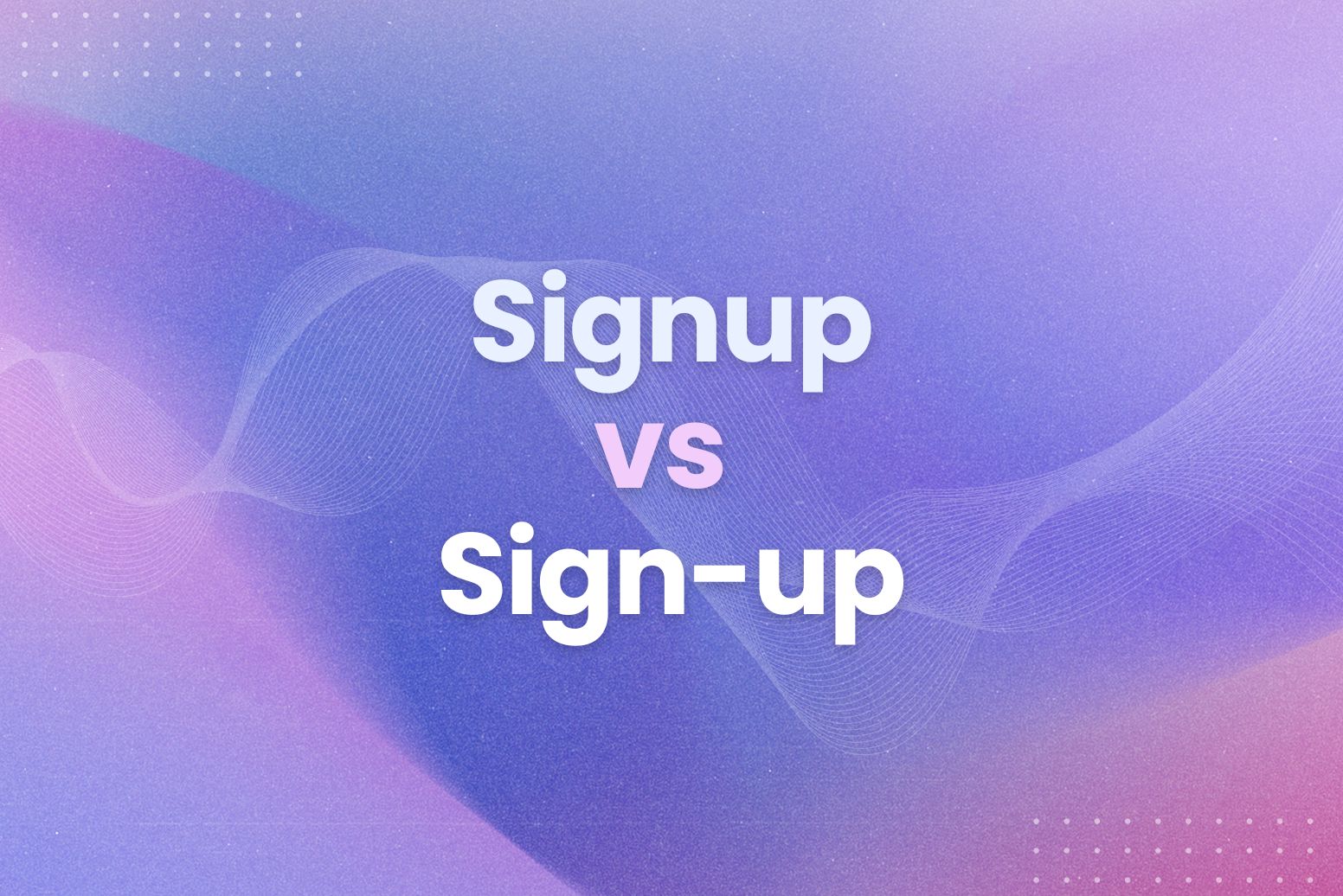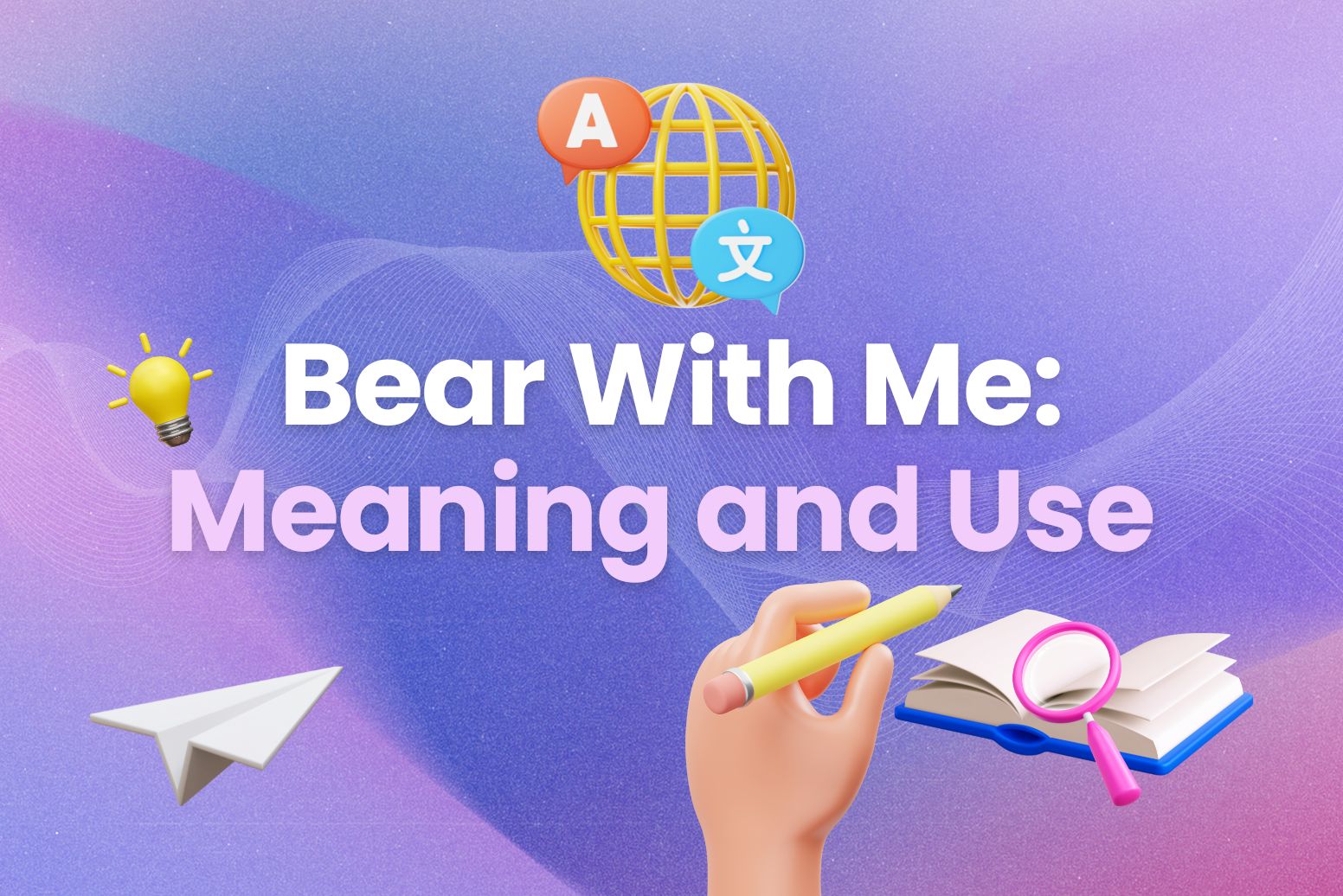It’s a common dilemma: signup or sign-up? Even seasoned writers can get tripped up by this tricky grammar point. We’re here to clear up the confusion and help you use these terms correctly. After all, proper grammar can make a big difference in how your writing is perceived.
In this post, we’ll explore:
- The correct usage of signup or sign-up
- Why getting it right actually matters
- Common mistakes to avoid (and how to fix them)
Let’s get started.
Signup or Sign-Up: What’s the Difference?
The correct usage depends on how you’re using the word.
- As a noun, it’s one word: “signup.” For example, “The signup process was quick and easy.”
- As a verb or adjective, it’s two words: “sign up.” For instance, “Don’t forget to sign up for the newsletter” or “Fill out the sign-up form.”
Think of it this way: when you’re describing the process of signing up, it’s one word. But when you’re talking about the act of signing up, it’s two words.
If you’re ever unsure, try replacing “signup” or “sign-up” with a similar verb like “register.” If “register” works, then “sign up” (two words) is likely the correct choice. For example, “Don’t forget to register for the newsletter” sounds correct, so “Don’t forget to sign up for the newsletter” is also correct.
Why Does Correct Usage Matter?
You might think, “Does it really matter if I use ‘signup’ or ‘sign-up’?” The short answer is yes. Here’s why:
Credibility and Professionalism
Firstly, using correct grammar shows that you care about attention to detail. This builds trust with your readers. They’ll be more likely to take you seriously if your writing is polished and error-free. Conversely, grammar mistakes can make you look unprofessional and even careless.
Clarity and Understanding
Secondly, using the correct form ensures that your message is clear and easy to understand. While the meaning might still be conveyed with a mistake, it can cause a momentary hiccup for the reader. Why introduce unnecessary confusion when clear communication is key?
SEO and Findability
Believe it or not, search engines care about grammar, too. Using correct grammar can improve your website’s SEO. In other words, it can help you rank higher in search results. This is because search engines prioritize content that is well-written and easy to understand.
4. Brand Reputation
Moreover, consistent and correct grammar contributes to a strong brand image. It shows that you’re professional and care about the quality of your content. This can lead to increased brand loyalty and customer trust.
So, how can you ensure you always get it right? Arvin’s grammar checker can be a lifesaver. It catches those pesky errors and suggests corrections, so you can write with confidence.
Common Mistakes (and How to Fix Them)
Even with the best intentions, it’s easy to slip up. Here are some common mistakes people make with “signup” and “sign-up”:
- Using “signup” as a verb: For example, “Make sure to signup for our webinar.” ❌
- The fix: Change it to “sign up” (two words). ✅ “Make sure to sign up for our webinar.”
- Using “sign-up” as a noun: For example, “Complete the sign-up process today.” ❌
- The fix: Change it to “signup” (one word). ✅ “Complete the signup process today.”
- Using the wrong capitalization: Sometimes, people capitalize “Sign-Up” when it should be lowercase.
- The fix: Unless it’s at the beginning of a sentence, keep it lowercase: “sign-up” or “signup.”
- Inconsistency: Switching between “signup” and “sign-up” within the same piece of writing.
- The fix: Choose one form and stick with it throughout your entire document.
By avoiding these common errors, you’ll ensure your writing is clear, consistent, and professional.
Write Confidently With Arvin: Wrapping Up
Hopefully, you now have a better grasp of when to use “signup” and “sign-up.” Remember, even small grammar details can make a big difference in your writing.
Here are the key takeaways:
- “Signup” (one word) is a noun.
- “Sign up” (two words) is a verb or adjective.
- Correct usage boosts credibility and clarity.
- Grammar checkers are your secret weapon.
Speaking of grammar checkers, Arvin can be a game-changer for your writing. It can help you catch those “signup” slip-ups and help you with other grammar issues, sentence structure, and even tone. Why not give it a try and see the difference for yourself?
FAQs
What is correct, signup or sign up?
The correct term depends on how you’re using it. As a noun, it’s one word: “signup.” As a verb or adjective, it’s two words: “sign up.”
Does signup need a hyphen?
Generally, no. The only time you’d use a hyphen is when it’s used as an adjective before a noun, like “sign-up sheet.”
Does signup have a space?
Yes, when it’s used as a verb: “sign up.” In this case, it indicates the action of registering or enrolling in something. For example, “Please sign up for our newsletter.”
However, when used as a noun, “signup” is written as one word without a space. This refers to the process of registering or the act of signing up itself. For instance, “The signup process was quick and easy.”
What do you mean by sign up?
“Sign up” means to register or enroll in something. For example, you might sign up for a newsletter, a course, or a social media platform.
What is the difference between signup and sign in?
“Signup” (or “sign up”) means to create a new account or register for something. “Sign in” means to log in to an existing account.
Is sign up formal?
“Sign up” is generally considered informal. However, it’s perfectly acceptable in most contexts, including professional ones. If you need something more formal, you could use “register” or “enroll” instead.






